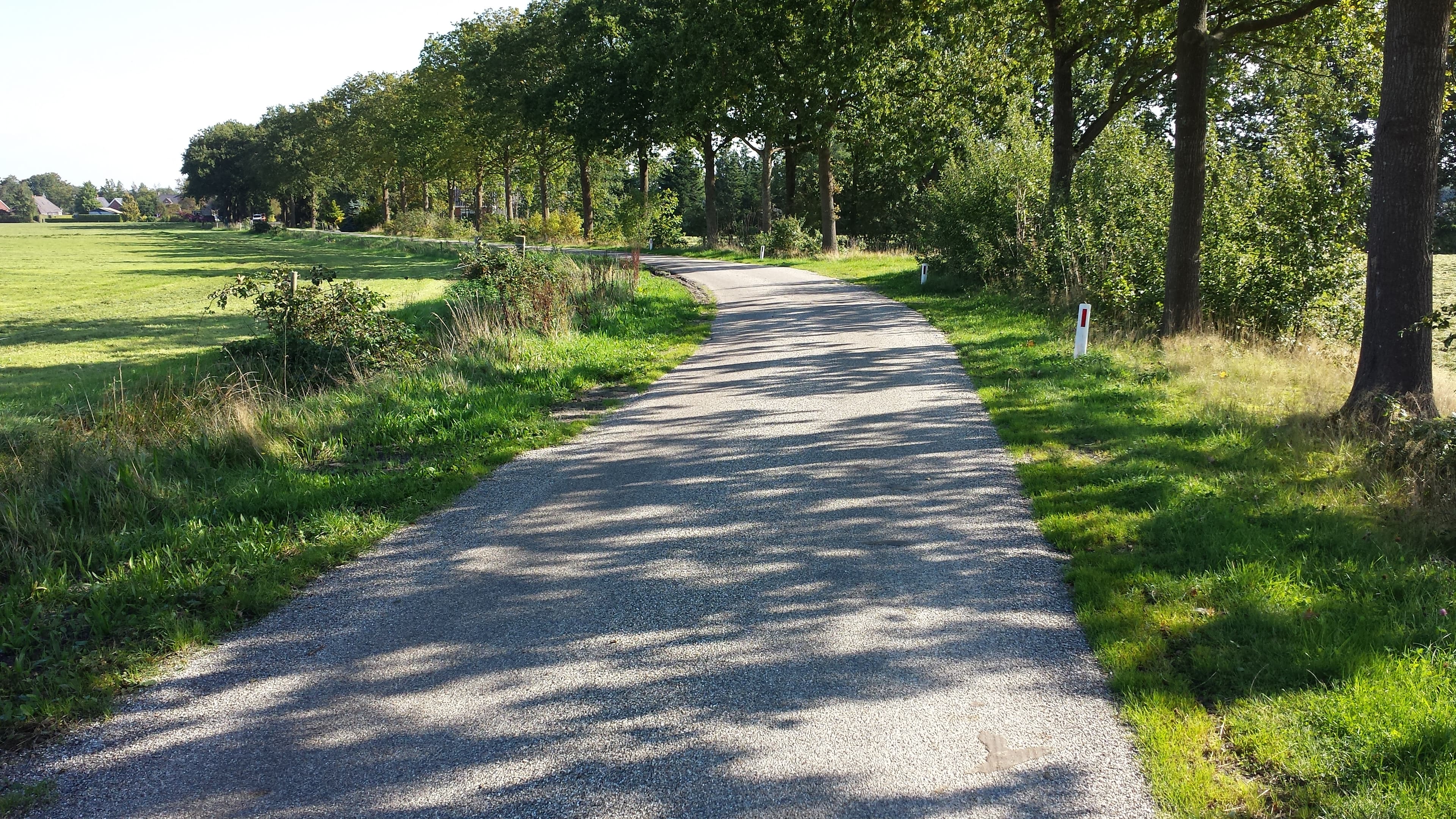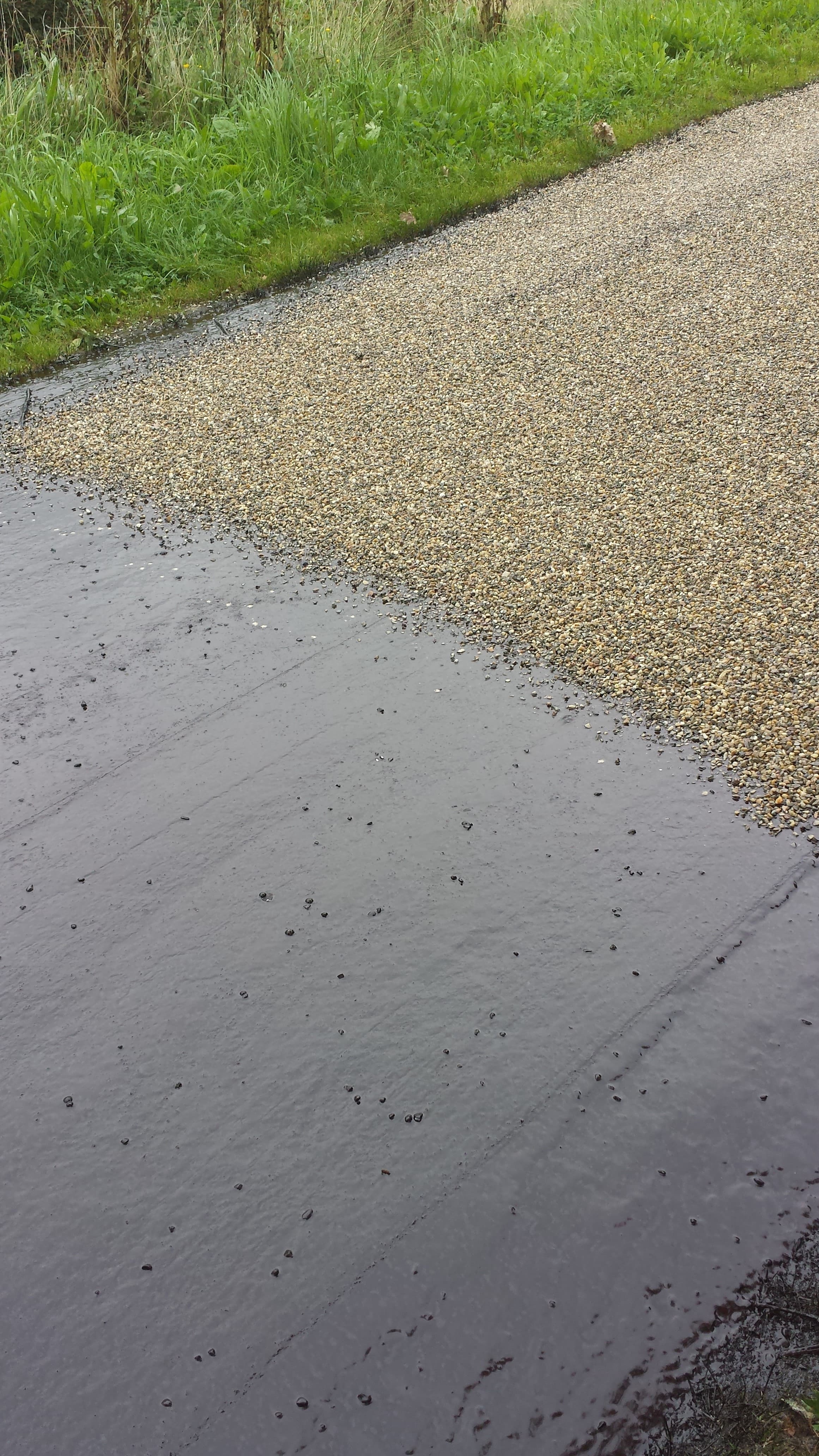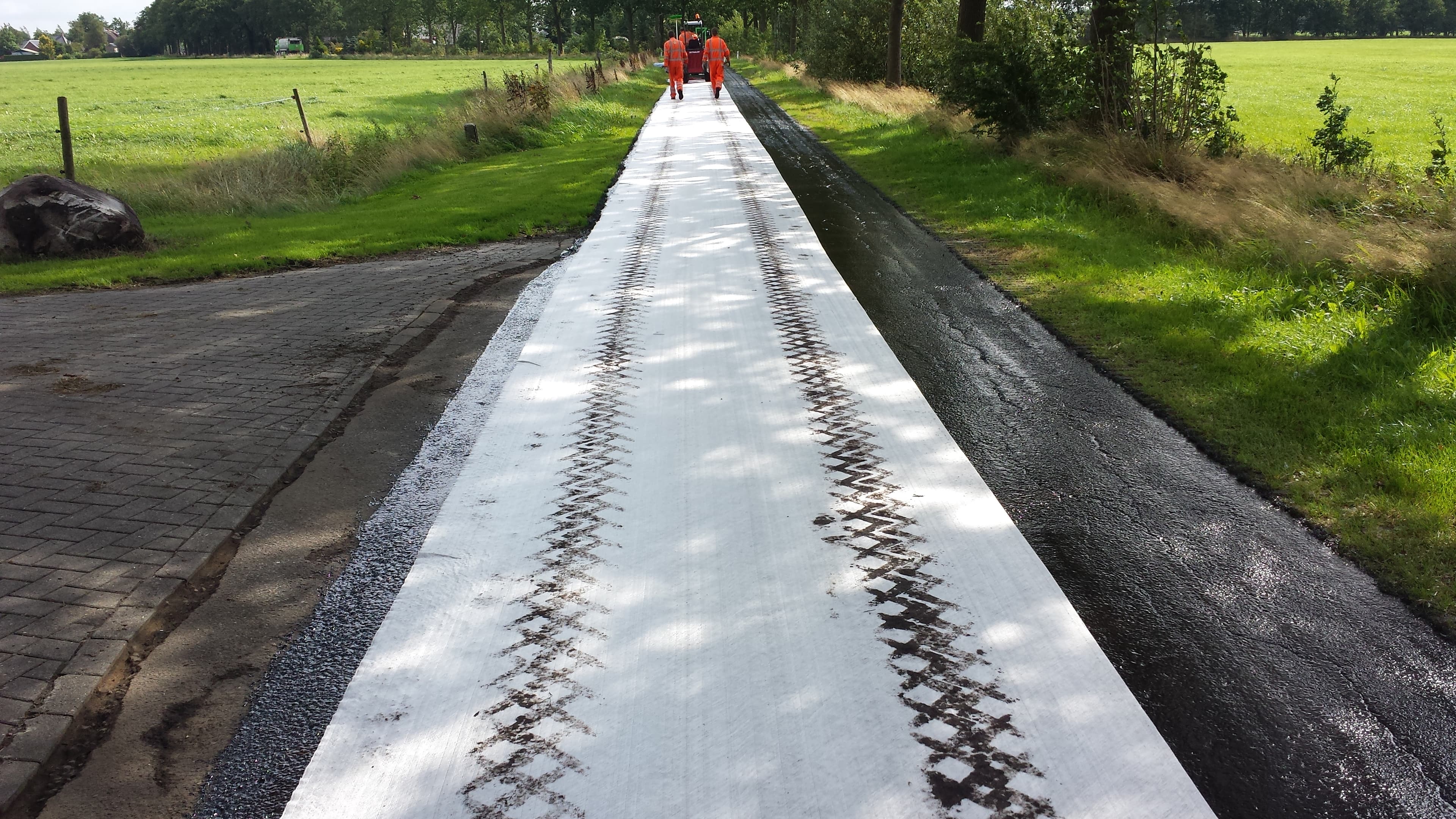Challenge
Cracking in asphalt pavements is a major issue for regional and secondary roads. Surface dressing is a well-known technique that restores texture depth and seals the road surface to prevent water damage. Bituminous overlays, such as chip sealing and MIRAGRID® PGM 14, are a cost-effective and proven method to extend pavement lifespan. When MIRAGRID PGM 14 is used in bituminous bound layers, it slows down the development and spread of reflective cracks, which can cause premature pavement failure.
Solution
In collaboration with our partner ESHA Infrasolutions, Solmax provided the perfect solution for the Dongeradeel community in the Netherlands. The existing roads had 80 mm (3.15 inches) cracked asphalt on a rough gravel foundation. The road profile was in good condition with minimal rutting. The aged bitumen created a cracked surface that allowed water to penetrate the road construction. This was an ideal scenario for applying MIRAGRID PGM 14 in combination with polymer modified bitumen. The installation of 3,000 m² (32,292 ft²) of MIRAGRID PGM 14 took only a few hours, allowing the entire project, including double surfacing treatment, to be completed in just one day.
BENEFITS OF USING PAVING FABRICS IN SURFACE DRESSING:
The bitumen impregnated fabric becomes an integral part of the road structure, absorbing stresses to reduce reflective and fatigue cracking of the asphalt or concrete surface. It also acts as a barrier, preventing surface water from entering and maintaining the pavement's structural strength.
Benefits include:
Reduced whole life maintenance costs
Significant extension of road service life
Increased area eligible for surface dressing, eliminating the need for costly inlay construction
Potential avoidance of expensive pre-patching
Reduced environmental impact through longer maintenance intervals
Elimination of future crack filling or sealing
Prevention of surface water ingress
Restoration of strength and load-carrying capacity for wet subgrades
Protection of underlying pavement from aging, oxidation, and traffic wear


